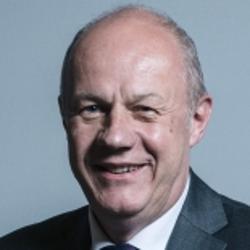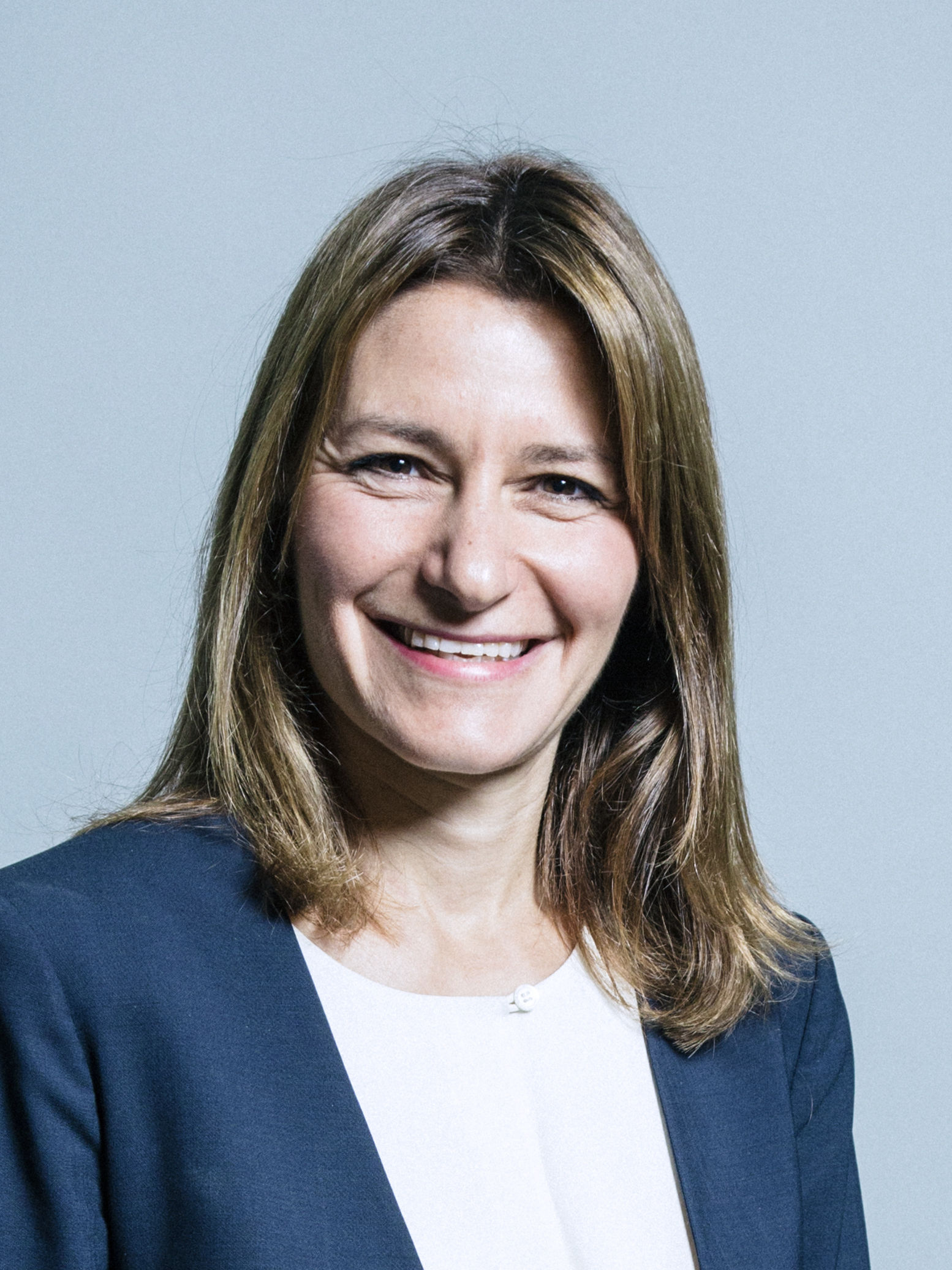Department for Digital, Culture, Media & Sport
The Department for Culture, Media and Sport will focus on supporting culture, arts, media, sport, tourism and civil society across every part of England — recognising the UK’s world-leading position in these areas and the importance of these sectors in contributing so much to our economy, way of life and our reputation around the world.
Shadow Ministers / Spokeperson
Democratic Unionist Party
Ian Paisley (DUP - North Antrim)Shadow DUP Spokesperson (Culture, Media and Sport)
Scottish National Party
John Nicolson (SNP - Ochil and South Perthshire)Shadow SNP Spokesperson (Digital, Culture, Media and Sport)
Liberal Democrat
Baroness Bonham-Carter of Yarnbury (LD - Life peer)Liberal Democrat Lords Spokesperson (Culture, Media and Sport)
Jamie Stone (LD - Caithness, Sutherland and Easter Ross)
Liberal Democrat Spokesperson (Digital, Culture, Media and Sport)
Labour
Lord Bassam of Brighton (Lab - Life peer)Shadow Spokesperson (Culture, Media and Sport)
Thangam Debbonaire (Lab - Bristol West)
Shadow Secretary of State for Digital, Culture, Media and Sport
Baroness Thornton (Lab - Life peer)
Shadow Spokesperson (Culture, Media and Sport)
Junior Shadow Ministers / Deputy Spokesperson
Labour
Stephanie Peacock (Lab - Barnsley East)Shadow Minister (Digital, Culture, Media and Sport)
Barbara Keeley (Lab - Worsley and Eccles South)
Shadow Minister (Culture, Media and Sport)
Lilian Greenwood (Lab - Nottingham South)
Shadow Minister (Culture, Media and Sport)
Ministers of State
Julia Lopez (Con - Hornchurch and Upminster)Minister of State (Department for Culture, Media and Sport)
Parliamentary Under-Secretaries of State
Stuart Andrew (Con - Pudsey)Parliamentary Under Secretary of State (Department for Culture, Media and Sport)
Lord Parkinson of Whitley Bay (Con - Life peer)
Parliamentary Under Secretary of State (Department for Culture, Media and Sport)
09:30
Oral questions - Main Chamber
23 May 2024, 9:30 a.m.
Culture, Media and Sport (including Topical Questions)
Save to Calendar
View calendar
09:30
Oral questions - Main Chamber
4 Jul 2024, 9:30 a.m.
Culture, Media and Sport (including Topical Questions)
Save to Calendar
View calendar
11:00
Oral Evidence
Last year, the UK experienced a net loss of 125 grassroots music venues (GMVs) across the UK, equivalent to over …
To ask the Secretary of State for Culture, Media and Sport, what assessment she has made of the potential impact …
This Order brings into force on 13th February 2023 a variation of the Public Lending Right Scheme 1982 (“the Scheme”) …
A Bill to make provision for the regulation of the processing of information relating to identified or identifiable living individuals; …
12:00
News and Communications
Department for Digital, Culture, Media & Sport Commons Appearances
Oral Answers to Questions is a regularly scheduled appearance where the Secretary of State and junior minister will answer at the Dispatch Box questions from backbench MPs
Other Commons Chamber appearances can be:- Urgent Questions where the Speaker has selected a question to which a Minister must reply that day
- Adjornment Debates a 30 minute debate attended by a Minister that concludes the day in Parliament.
- Oral Statements informing the Commons of a significant development, where backbench MP's can then question the Minister making the statement.
Westminster Hall debates are performed in response to backbench MPs or e-petitions asking for a Minister to address a detailed issue
Written Statements are made when a current event is not sufficiently significant to require an Oral Statement, but the House is required to be informed.
Most Recent Commons Appearances by Category
Bills currently before Parliament
Department for Digital, Culture, Media & Sport does not have Bills currently before Parliament
Acts of Parliament created in the 2019 Parliament
A Bill to make provision for and in connection with the regulation by OFCOM of certain internet services; for and in connection with communications offences; and for connected purposes
This Bill received Royal Assent on 26th October 2023 and was enacted into law.
A Bill to make provision about the security of internet-connectable products and products capable of connecting to such products; to make provision about electronic communications infrastructure; and for connected purposes.
This Bill received Royal Assent on 6th December 2022 and was enacted into law.
A Bill to amend the Charities Act 2011 and the Universities and College Estates Act 1925; and for connected purposes
This Bill received Royal Assent on 24th February 2022 and was enacted into law.
A Bill to make provision for and in connection with an expanded dormant assets scheme; to confer power to further expand the scope of that scheme; to amend the Dormant Bank and Building Society Accounts Act 2008; to enable an authorised reclaim fund to accept transfers of certain unwanted assets; and for connected purposes
This Bill received Royal Assent on 24th February 2022 and was enacted into law.
A Bill to make provision about the security of public electronic communications networks and public electronic communications services.
This Bill received Royal Assent on 17th November 2021 and was enacted into law.
A Bill to amend the electronic communications code set out in Schedule 3A to the Communications Act 2003; and for connected purposes.
This Bill received Royal Assent on 15th March 2021 and was enacted into law.
A bill to make provision about the Commonwealth Games that are to be held principally in Birmingham in 2022; and for connected purposes
This Bill received Royal Assent on 25th June 2020 and was enacted into law.
Department for Digital, Culture, Media & Sport - Secondary Legislation
Petitions
e-Petitions are administered by Parliament and allow members of the public to express support for a particular issue.
If an e-petition reaches 10,000 signatures the Government will issue a written response.
If an e-petition reaches 100,000 signatures the petition becomes eligible for a Parliamentary debate (usually Monday 4.30pm in Westminster Hall).
(62 in the last 7 days)
(19 in the last 7 days)
(19 in the last 7 days)
(62 in the last 7 days)
Petition Closed
Make verified ID a requirement for opening a social media account.
Gov Responded - 5 May 2021 Debated on - 28 Feb 2022closed 2 years, 7 months ago
Make it a legal requirement when opening a new social media account, to provide a verified form of ID. Where the account belongs to a person under the age of 18 verify the account with the ID of a parent/guardian, to prevent anonymised harmful activity, providing traceability if an offence occurs.
Petition Closed
Prevent gyms closing due to a spike in Covid 19 cases
Gov Responded - 28 Oct 2020 Debated on - 23 Nov 2020closed 3 years, 2 months ago
In the event of a spike we would like you not to close gyms as a measure to stop any spread of Covid. Also for gyms to not be put in the same group as pubs in terms of risk or importance. Gyms are following strict guidelines and most members are following rules in a sober manner.
Petition Closed
Open gyms first as we come out of lockdown & fund a Work Out to Help Out scheme
Gov Responded - 16 Mar 2021 Debated on - 22 Mar 2021closed 2 years, 9 months ago
We want the government to recognise the importance of gyms, health clubs, leisure centres and swimming pools in empowering people to look after their health and stay fit and for them to open first as we come out of lockdown.
We're also calling for government to fund a Work Out to Help Out scheme.
Departmental Select Committee
Culture, Media and Sport Committee
Commons Select Committees are a formally established cross-party group of backbench MPs tasked with holding a Government department to account.
At any time there will be number of ongoing investigations into the work of the Department, or issues which fall within the oversight of the Department. Witnesses can be summoned from within the Government and outside to assist in these inquiries.
Select Committee findings are reported to the Commons, printed, and published on the Parliament website. The government then usually has 60 days to reply to the committee's recommendations.
12 Members of the Culture, Media and Sport Committee

Culture, Media and Sport Committee Member since 2nd March 2020

Culture, Media and Sport Committee Member since 2nd March 2020

Culture, Media and Sport Committee Member since 2nd March 2020

Culture, Media and Sport Committee Member since 2nd March 2020

Culture, Media and Sport Committee Member since 2nd March 2020

Culture, Media and Sport Committee Member since 2nd March 2020

Culture, Media and Sport Committee Member since 2nd March 2020

Culture, Media and Sport Committee Member since 19th October 2021

Culture, Media and Sport Committee Member since 19th October 2021

Culture, Media and Sport Committee Member since 7th March 2022

Culture, Media and Sport Committee Member since 17th May 2023

Culture, Media and Sport Committee Member since 15th January 2024
Culture, Media and Sport Committee: 7 Current Inquiries
Culture, Media and Sport Committee: Previous Inquiries
50 most recent Written Questions
(View all written questions)John Hayes
(Conservative - South Holland and The Deepings)
The Government-funded High Streets Heritage Action Zones programme ran from 2019 to 2024. It was administered by Historic England. The programme has funded the transformation and restoration of over 60 high streets, creating economic growth and improving quality of life in these areas.
The total grant funding awarded for programmes in Lincolnshire from 2019 to 2023 was £2,616,859. There were two programmes in Lincolnshire – in Lincoln (£1,971,279) and Grantham (£645,580).
The total grant funding for the East Midlands (excluding Lincolnshire) from 2019 to 2023 was £5,727,564. There were five programmes across the East Midlands – in Buxton (£943,972), Hinkley (£577,868), Leicester (£1,909,237), Kettering (£2,124,417), and Newark (£172,070).
Minister of State (Department for Science, Innovation and Technology)
Maintenance of grass football pitches is the responsibility of individual clubs in conjunction with the FA. Clubs that play at Step 1 to 6 of the National League System and Tiers 1 to 4 of the Women’s Football Pyramid are eligible to apply for grants through the Premier League Stadium Fund in order to make improvements to their grounds. Administration of the grants is managed by the Football Foundation.
Government is also delivering an historic level of direct investment to build or upgrade thousands of grassroots facilities across the UK. This includes £327 million to provide up to 8,000 new and improved multi-sport grassroots facilities and pitches across the whole of the UK between 2021 and 2025.
The Government recognises the logistical difficulties posed by weather-related postponements, and the consequent fixture congestion caused. This is exacerbated for clubs that have been forced to play their home fixtures at an alternative venue where the surface at their home ground is unplayable. However, the decision of whether or not to extend a football season is one that must be made by the FA as national governing body of the sport.
Parliamentary Under Secretary of State (Department for Culture, Media and Sport)
Maintenance of grass football pitches is the responsibility of individual clubs in conjunction with the FA. Clubs that play at Step 1 to 6 of the National League System and Tiers 1 to 4 of the Women’s Football Pyramid are eligible to apply for grants through the Premier League Stadium Fund in order to make improvements to their grounds. Administration of the grants is managed by the Football Foundation.
Government is also delivering an historic level of direct investment to build or upgrade thousands of grassroots facilities across the UK. This includes £327 million to provide up to 8,000 new and improved multi-sport grassroots facilities and pitches across the whole of the UK between 2021 and 2025.
The Government recognises the logistical difficulties posed by weather-related postponements, and the consequent fixture congestion caused. This is exacerbated for clubs that have been forced to play their home fixtures at an alternative venue where the surface at their home ground is unplayable. However, the decision of whether or not to extend a football season is one that must be made by the FA as national governing body of the sport.
Parliamentary Under Secretary of State (Department for Culture, Media and Sport)
Maintenance of grass football pitches is the responsibility of individual clubs in conjunction with the FA. Clubs that play at Step 1 to 6 of the National League System and Tiers 1 to 4 of the Women’s Football Pyramid are eligible to apply for grants through the Premier League Stadium Fund in order to make improvements to their grounds. Administration of the grants is managed by the Football Foundation.
Government is also delivering an historic level of direct investment to build or upgrade thousands of grassroots facilities across the UK. This includes £327 million to provide up to 8,000 new and improved multi-sport grassroots facilities and pitches across the whole of the UK between 2021 and 2025.
The Government recognises the logistical difficulties posed by weather-related postponements, and the consequent fixture congestion caused. This is exacerbated for clubs that have been forced to play their home fixtures at an alternative venue where the surface at their home ground is unplayable. However, the decision of whether or not to extend a football season is one that must be made by the FA as national governing body of the sport.
Parliamentary Under Secretary of State (Department for Culture, Media and Sport)
Maintenance of grass football pitches is the responsibility of individual clubs in conjunction with the FA. Clubs that play at Step 1 to 6 of the National League System and Tiers 1 to 4 of the Women’s Football Pyramid are eligible to apply for grants through the Premier League Stadium Fund in order to make improvements to their grounds. Administration of the grants is managed by the Football Foundation.
Government is also delivering an historic level of direct investment to build or upgrade thousands of grassroots facilities across the UK. This includes £327 million to provide up to 8,000 new and improved multi-sport grassroots facilities and pitches across the whole of the UK between 2021 and 2025.
The Government recognises the logistical difficulties posed by weather-related postponements, and the consequent fixture congestion caused. This is exacerbated for clubs that have been forced to play their home fixtures at an alternative venue where the surface at their home ground is unplayable. However, the decision of whether or not to extend a football season is one that must be made by the FA as national governing body of the sport.
Parliamentary Under Secretary of State (Department for Culture, Media and Sport)
Maintenance of grass football pitches is the responsibility of individual clubs in conjunction with the FA. Clubs that play at Step 1 to 6 of the National League System and Tiers 1 to 4 of the Women’s Football Pyramid are eligible to apply for grants through the Premier League Stadium Fund in order to make improvements to their grounds. Administration of the grants is managed by the Football Foundation.
Government is also delivering an historic level of direct investment to build or upgrade thousands of grassroots facilities across the UK. This includes £327 million to provide up to 8,000 new and improved multi-sport grassroots facilities and pitches across the whole of the UK between 2021 and 2025.
The Government recognises the logistical difficulties posed by weather-related postponements, and the consequent fixture congestion caused. This is exacerbated for clubs that have been forced to play their home fixtures at an alternative venue where the surface at their home ground is unplayable. However, the decision of whether or not to extend a football season is one that must be made by the FA as national governing body of the sport.
Parliamentary Under Secretary of State (Department for Culture, Media and Sport)
Maintenance of grass football pitches is the responsibility of individual clubs in conjunction with the FA. Clubs that play at Step 1 to 6 of the National League System and Tiers 1 to 4 of the Women’s Football Pyramid are eligible to apply for grants through the Premier League Stadium Fund in order to make improvements to their grounds. Administration of the grants is managed by the Football Foundation.
Government is also delivering an historic level of direct investment to build or upgrade thousands of grassroots facilities across the UK. This includes £327 million to provide up to 8,000 new and improved multi-sport grassroots facilities and pitches across the whole of the UK between 2021 and 2025.
The Government recognises the logistical difficulties posed by weather-related postponements, and the consequent fixture congestion caused. This is exacerbated for clubs that have been forced to play their home fixtures at an alternative venue where the surface at their home ground is unplayable. However, the decision of whether or not to extend a football season is one that must be made by the FA as national governing body of the sport.
Parliamentary Under Secretary of State (Department for Culture, Media and Sport)
Maintenance of grass football pitches is the responsibility of individual clubs in conjunction with the FA. Clubs that play at Step 1 to 6 of the National League System and Tiers 1 to 4 of the Women’s Football Pyramid are eligible to apply for grants through the Premier League Stadium Fund in order to make improvements to their grounds. Administration of the grants is managed by the Football Foundation.
Government is also delivering an historic level of direct investment to build or upgrade thousands of grassroots facilities across the UK. This includes £327 million to provide up to 8,000 new and improved multi-sport grassroots facilities and pitches across the whole of the UK between 2021 and 2025.
The Government recognises the logistical difficulties posed by weather-related postponements, and the consequent fixture congestion caused. This is exacerbated for clubs that have been forced to play their home fixtures at an alternative venue where the surface at their home ground is unplayable. However, the decision of whether or not to extend a football season is one that must be made by the FA as national governing body of the sport.
Parliamentary Under Secretary of State (Department for Culture, Media and Sport)
Maintenance of grass football pitches is the responsibility of individual clubs in conjunction with the FA. Clubs that play at Step 1 to 6 of the National League System and Tiers 1 to 4 of the Women’s Football Pyramid are eligible to apply for grants through the Premier League Stadium Fund in order to make improvements to their grounds. Administration of the grants is managed by the Football Foundation.
Government is also delivering an historic level of direct investment to build or upgrade thousands of grassroots facilities across the UK. This includes £327 million to provide up to 8,000 new and improved multi-sport grassroots facilities and pitches across the whole of the UK between 2021 and 2025.
The Government recognises the logistical difficulties posed by weather-related postponements, and the consequent fixture congestion caused. This is exacerbated for clubs that have been forced to play their home fixtures at an alternative venue where the surface at their home ground is unplayable. However, the decision of whether or not to extend a football season is one that must be made by the FA as national governing body of the sport.
Parliamentary Under Secretary of State (Department for Culture, Media and Sport)
Maintenance of grass football pitches is the responsibility of individual clubs in conjunction with the FA. Clubs that play at Step 1 to 6 of the National League System and Tiers 1 to 4 of the Women’s Football Pyramid are eligible to apply for grants through the Premier League Stadium Fund in order to make improvements to their grounds. Administration of the grants is managed by the Football Foundation.
Government is also delivering an historic level of direct investment to build or upgrade thousands of grassroots facilities across the UK. This includes £327 million to provide up to 8,000 new and improved multi-sport grassroots facilities and pitches across the whole of the UK between 2021 and 2025.
The Government recognises the logistical difficulties posed by weather-related postponements, and the consequent fixture congestion caused. This is exacerbated for clubs that have been forced to play their home fixtures at an alternative venue where the surface at their home ground is unplayable. However, the decision of whether or not to extend a football season is one that must be made by the FA as national governing body of the sport.
Parliamentary Under Secretary of State (Department for Culture, Media and Sport)
Maintenance of grass football pitches is the responsibility of individual clubs in conjunction with the FA. Clubs that play at Step 1 to 6 of the National League System and Tiers 1 to 4 of the Women’s Football Pyramid are eligible to apply for grants through the Premier League Stadium Fund in order to make improvements to their grounds. Administration of the grants is managed by the Football Foundation.
Government is also delivering an historic level of direct investment to build or upgrade thousands of grassroots facilities across the UK. This includes £327 million to provide up to 8,000 new and improved multi-sport grassroots facilities and pitches across the whole of the UK between 2021 and 2025.
The Government recognises the logistical difficulties posed by weather-related postponements, and the consequent fixture congestion caused. This is exacerbated for clubs that have been forced to play their home fixtures at an alternative venue where the surface at their home ground is unplayable. However, the decision of whether or not to extend a football season is one that must be made by the FA as national governing body of the sport.
Parliamentary Under Secretary of State (Department for Culture, Media and Sport)
Maintenance of grass football pitches is the responsibility of individual clubs in conjunction with the FA. Clubs that play at Step 1 to 6 of the National League System and Tiers 1 to 4 of the Women’s Football Pyramid are eligible to apply for grants through the Premier League Stadium Fund in order to make improvements to their grounds. Administration of the grants is managed by the Football Foundation.
Government is also delivering an historic level of direct investment to build or upgrade thousands of grassroots facilities across the UK. This includes £327 million to provide up to 8,000 new and improved multi-sport grassroots facilities and pitches across the whole of the UK between 2021 and 2025.
The Government recognises the logistical difficulties posed by weather-related postponements, and the consequent fixture congestion caused. This is exacerbated for clubs that have been forced to play their home fixtures at an alternative venue where the surface at their home ground is unplayable. However, the decision of whether or not to extend a football season is one that must be made by the FA as national governing body of the sport.
Parliamentary Under Secretary of State (Department for Culture, Media and Sport)
The Government is committed to delivering top class sports facilities across the country, so that everyone can take part in sport and physical activity. As part of this commitment, the Government is delivering an historic level of direct investment to build or upgrade thousands of grassroots sport facilities across the UK.
Between 2021 and 2025, the UK Government is delivering investment of over £400 million to build or upgrade thousands of grassroots facilities across the UK. The largest component of this funding is the Multi-Sport Grassroots Facilities Programme, which is investing over £320 million in, among other things, new third generation playing surfaces.
Government recognises the importance of levelling up grassroots facilities across the country and as part of the delivery of the Multi-Sport Grassroots Facilities Programme, we are analysing the need for future funding and how this will be delivered, taking into account the upcoming Spending Review.
Government has been clear that the Football Association plays an integral role in the funding of grassroots facilities, and investment in both 3G and grass pitches remains a key priority. Government will continue to work with the Football Association to encourage future investment into facilities through the Football Foundation.
Parliamentary Under Secretary of State (Department for Culture, Media and Sport)
The Government recognises recent concerns raised by video games users regarding the long-term operability of purchased products. Video games publishers must comply with existing consumer law, including the Consumer Rights Act 2015 (CRA) and the Consumer Protection from Unfair Trading Regulations 2008 (CPRs).
The CPRs protect consumers from being given false or misleading information by businesses. If consumers purchased a game on the understanding that it would continue to be playable, even when support ends, then the CPRs may provide recourse.
Under the CRA, consumers have clear rights when buying digital content, such as video games, supplied in digital form. Any digital content the consumer has paid for must be as described and of a satisfactory quality. If digital content does not meet these requirements, the consumer is entitled to a repair or replacement, or a price reduction or refund if the fault cannot be fixed. The CRA has a time limit of up to six years after a breach of contract during which a consumer can take legal action.
Minister of State (Department for Science, Innovation and Technology)
In our Sport Strategy, ‘Get Active’, we set out our unapologetic ambition to build a more active nation and our vision to ensure the sector can thrive in the years ahead. Outdoor recreation on our nation’s coastline and in our rivers, lakes and canals are vital to the participation landscape.
We recognise the need for water sport participants to have access to consistent and up-to-date data about bathing water quality. DCMS is working with relevant water based National Governing Bodies and the Outdoors For All Coalition to understand the barriers to accessing and participating in green and blue spaces.
Designated bathing waters and water quality monitoring in England remain the responsibility of the Department for Environment, Food and Rural Affairs (Defra) and the Environment Agency (EA). DEFRA is a permanent member of the National Physical Activity Taskforce, which ensures that we deliver coordinated policy in this area.
Parliamentary Under Secretary of State (Department for Culture, Media and Sport)
In our Sport Strategy, ‘Get Active’, we set out our unapologetic ambition to build a more active nation and our vision to ensure the sector can thrive in the years ahead. Outdoor recreation on our nation’s coastline and in our rivers, lakes and canals are vital to the participation landscape.
We recognise the need for water sport participants to have access to consistent and up-to-date data about bathing water quality. DCMS is working with relevant water based National Governing Bodies and the Outdoors For All Coalition to understand the barriers to accessing and participating in green and blue spaces.
Designated bathing waters and water quality monitoring in England remain the responsibility of the Department for Environment, Food and Rural Affairs (Defra) and the Environment Agency (EA). DEFRA is a permanent member of the National Physical Activity Taskforce, which ensures that we deliver coordinated policy in this area.
Parliamentary Under Secretary of State (Department for Culture, Media and Sport)
The Government is committed to levelling up access to community and grassroots sport - physical activity should be accessible to all, no matter a person’s background or location. As part of this commitment, the Government is delivering an historic level of direct investment to build or upgrade thousands of grassroots facilities across the UK. The total of this investment is £409 million. This includes:
£327 million to provide up to 8,000 new and improved multi-sport grassroots facilities and pitches across the whole of the UK between 2021 and 2025.
£21.9 million to renovate over 3,000 tennis courts across Scotland, England and Wales between 2022 and 2024.
Over £60 million via the Swimming Pool Support Fund in 2023/24 to support public swimming pool providers in England with immediate cost pressures, and provide investment to make facilities sustainable in the longer-term.
In total, Suffolk has received over £1.9m in funding through these programmes:
Multi-Sport Grassroots Facilities Programme: Over £1 million has been awarded through 38 grants since 2021. Over £74k has been invested into Suffolk Coastal specifically through 16 grants. All funded sites are listed on gov.uk here: https://www.gov.uk/government/collections/multi-sport-grassroots-facilities-programme-projects-2021-to-2025
Swimming Pool Support Fund: Over £900,000 has been awarded to 7 individual facilities across 5 Local Authorities in the Suffolk region by March 2025. All funded sites are listed here on Sport England’s website: https://www.sportengland.org/news-and-inspiration/swimming-pool-support-fund-helps-facilities-prepare-future
Funding for football and multi-sport projects awarded in England prior to 2021 were delivered by the Football Foundation, funded through Sport England. Sport England’s funding to the Football Foundation is available on their website, along with all awards made by Sport England to football clubs since 2009: https://www.sportengland.org/
Further details of local authorities and swimming pools/leisure centres awarded funding from Phase I and Phase II of the Swimming Pool Support Fund are available on Sport England’s website at:
https://www.sportengland.org/news/swimming-pool-support-fund-keeps-leisure-centres-afloat
Sport England has also invested an additional £85 million into projects which facilitate participation in grassroots football. For a breakdown of the projects funded across this period, Sport England publishes an updated register of grant awards on a quarterly basis, with awards dating back to 2009 listed in full.
Parliamentary Under Secretary of State (Department for Culture, Media and Sport)
Following Covid-19 and a strategic review, in 2023 the NCS Trust launched a new delivery model for the NCS programme. The new programme consists of residential, community and digital experiences. NCS Trust provides grant-funding to local organisations across England to deliver these community experiences.
In Suffolk, two organisations have received a total of £321,445 grant-funding. Volunteering Matters have received a grant to work with targeted groups of young people in Suffolk. Hear2Listen have received a grant, and are delivering programmes for young people in their local communities through Inspire Suffolk and Ipswich Town Football Club. Currently NCS Trust have not funded organisations that work exclusively in the Suffolk coastal constituency, however the grant funded organisations they work with in Suffolk cover this area in their remit.
Parliamentary Under Secretary of State (Department for Culture, Media and Sport)
Individual building owners are responsible for health and safety, including responding to safety alerts such as the one relating to reinforced autoclaved aerated concrete (RAAC).
The Department for Culture Media & Sport is in regular contact with our arm’s-length bodies about all aspects of building management, including RAAC. We are aware of one instance of RAAC in an arm’s-length body and have advised it, and other organisations in the cultural and sporting sector for which DCMS does not have direct responsibility, to follow the latest guidance from the Office of Government Property and Institution of Structural Engineers.
Minister of State (Department for Science, Innovation and Technology)
His Majesty’s Government recognises that cinemas and cultural venues are a hugely important part of the UK’s cultural landscape. We are committed to supporting them and the cultural sector more broadly.
HM Government provides funding opportunities for the arts and other cultural organisations in a range of ways, including direct Government funding, via arm’s-length bodies like Arts Council England, and indirectly through local authorities.
Through Arts Council England’s current investment programme, more than £444 million of public money is being invested each year in arts and culture across England. This is an increase from £410 million in the previous portfolio, and will support 985 organisations across England – more than ever before. In addition, through Arts Council England’s National Lottery Project Grant funding, over £105 million of awards were provided to individuals and arts organisations in 2022/23. This funding programme is open for applications from organisations anywhere in England.
The British Film Institute (BFI) is also conscious of the pressures faced by the cinema sector. The BFI’s Film Audience Network (BFI FAN) is a collaboration of 8 film hubs, managed by leading film organisations and venues around the UK. Film hubs are centres of expertise and support which connect cinemas, festivals, and creative practitioners. You can read more about the National Lottery funding the BFI makes available to bring film to a wider UK audience, including through BFI FAN, at: https://www.bfi.org.uk/get-funding-support/bring-film-wider-uk-audience.
The Government’s £150 million Community Ownership Fund helps to ensure that important parts of the social fabric, such as cinemas, pubs, sports clubs, and theatres, can continue to play a central role in towns and villages across the UK. Round 4 is the final round of the Community Ownership Fund, and the last window for bids will open in late May. You can find out more about the next round of the Community Ownership Fund at: https://www.gov.uk/government/publications/community-ownership-fund-prospectus
Minister of State (Department for Science, Innovation and Technology)
His Majesty’s Government recognises that cinemas and cultural venues are a hugely important part of the UK’s cultural landscape. We are committed to supporting them and the cultural sector more broadly.
HM Government provides funding opportunities for the arts and other cultural organisations in a range of ways, including direct Government funding, via arm’s-length bodies like Arts Council England, and indirectly through local authorities.
Through Arts Council England’s current investment programme, more than £444 million of public money is being invested each year in arts and culture across England. This is an increase from £410 million in the previous portfolio, and will support 985 organisations across England – more than ever before. In addition, through Arts Council England’s National Lottery Project Grant funding, over £105 million of awards were provided to individuals and arts organisations in 2022/23. This funding programme is open for applications from organisations anywhere in England.
The British Film Institute (BFI) is also conscious of the pressures faced by the cinema sector. The BFI’s Film Audience Network (BFI FAN) is a collaboration of 8 film hubs, managed by leading film organisations and venues around the UK. Film hubs are centres of expertise and support which connect cinemas, festivals, and creative practitioners. You can read more about the National Lottery funding the BFI makes available to bring film to a wider UK audience, including through BFI FAN, at: https://www.bfi.org.uk/get-funding-support/bring-film-wider-uk-audience.
The Government’s £150 million Community Ownership Fund helps to ensure that important parts of the social fabric, such as cinemas, pubs, sports clubs, and theatres, can continue to play a central role in towns and villages across the UK. Round 4 is the final round of the Community Ownership Fund, and the last window for bids will open in late May. You can find out more about the next round of the Community Ownership Fund at: https://www.gov.uk/government/publications/community-ownership-fund-prospectus
Minister of State (Department for Science, Innovation and Technology)
His Majesty’s Government is committed to protecting the historic environment for the benefit of present and future generations. DCMS is responsible for the statutory heritage protection system and welcomes applications — through Historic England — for heritage assets to be considered for designation.
Significant public funding is distributed to heritage assets across the country, via both Government and our key partners such as Historic England and the National Lottery Heritage Fund.
Historic England provides funding for heritage through various grant schemes, including £11.3 million annually for Heritage at Risk. Historic England has also awarded public funding to 67 historic High Streets across England through the £95 million High Street Heritage Action Zone Programme, with the majority of this funding being used to repair and improve heritage assets.
The National Lottery Heritage Fund also provides funding for heritage projects with a community angle across the country, awarding more than £8.4 billion in Lottery funds to more than 46,000 heritage projects across the UK. The Fund has made awards in every parliamentary constituency in the UK.
Through the £4.8 billion Levelling Up Fund, HM Government is directly investing in many projects which benefit heritage across England, Wales, Scotland, and Northern Ireland. The £150 million Community Ownership Fund is also open to groups across the UK to take ownership of heritage assets which are at risk of being lost to the community. Many of these projects are benefiting heritage assets in areas across the country.
DCMS also provides up to £42 million for the Listed Place of Worship Grant Scheme, which provides grants to reimburse the VAT paid on repairs and maintenance to the nation's listed places of worship, to support our historic spiritual architecture for the benefit of present and future generations.
Minister of State (Department for Science, Innovation and Technology)
George Eustice
(Conservative - Camborne and Redruth)
The Government has no plans to instruct the Civil Procedure Rule Committee to amend rules of court in regard to the commencement and implementation of section 40 of the Crime and Courts Act 2013. This aligns with its commitment to repeal section 40.
Minister of State (Department for Science, Innovation and Technology)
I was sorry to learn about the closure of the British Youth Council and want to express gratitude for its work over the years. Government is committed to the delivery of the UK Youth Parliament and intends to use funding allocated to BYC in 2024/25 to support the programme. We are working alongside previous UKYP delivery partners from English regions and the devolved administrations, to understand the implications of BYCs closure for programme delivery. We have been working at pace to identify a suitable organisation which can hold overall grant management responsibility for the UKYP 24/25 and I will update the house as soon as next steps have been formalised. In parallel, we will be leading engagement with young people and key stakeholders to plan for the longer-term future of the UKYP.
An evaluation of the impact of the Youth Parliament was conducted between October 2022 and March 2023 and found that all stakeholders, participants, delivery staff and policy officials, agreed that the programmes were important vehicles to engage young people in the UK political processes and support youth-informed policy development. A new evaluation of the UK Youth Parliament programme was started in 23/24 and is due to conclude in 24/25.
Since 2017, Government has provided a total amount of c.£2.4m to the British Youth Council to deliver youth voice activities including the UK Youth Parliament, Youth Select Committees and Make Your Mark.
Parliamentary Under Secretary of State (Department for Culture, Media and Sport)
I was sorry to learn about the closure of the British Youth Council and want to express gratitude for its work over the years. Government is committed to the delivery of the UK Youth Parliament and intends to use funding allocated to BYC in 2024/25 to support the programme. We are working alongside previous UKYP delivery partners from English regions and the devolved administrations, to understand the implications of BYCs closure for programme delivery. We have been working at pace to identify a suitable organisation which can hold overall grant management responsibility for the UKYP 24/25 and I will update the house as soon as next steps have been formalised. In parallel, we will be leading engagement with young people and key stakeholders to plan for the longer-term future of the UKYP.
An evaluation of the impact of the Youth Parliament was conducted between October 2022 and March 2023 and found that all stakeholders, participants, delivery staff and policy officials, agreed that the programmes were important vehicles to engage young people in the UK political processes and support youth-informed policy development. A new evaluation of the UK Youth Parliament programme was started in 23/24 and is due to conclude in 24/25.
Since 2017, Government has provided a total amount of c.£2.4m to the British Youth Council to deliver youth voice activities including the UK Youth Parliament, Youth Select Committees and Make Your Mark.
Parliamentary Under Secretary of State (Department for Culture, Media and Sport)
I was sorry to learn about the closure of the British Youth Council and want to express gratitude for its work over the years. Government is committed to the delivery of the UK Youth Parliament and intends to use funding allocated to BYC in 2024/25 to support the programme. We are working alongside previous UKYP delivery partners from English regions and the devolved administrations, to understand the implications of BYCs closure for programme delivery. We have been working at pace to identify a suitable organisation which can hold overall grant management responsibility for the UKYP 24/25 and I will update the house as soon as next steps have been formalised. In parallel, we will be leading engagement with young people and key stakeholders to plan for the longer-term future of the UKYP.
An evaluation of the impact of the Youth Parliament was conducted between October 2022 and March 2023 and found that all stakeholders, participants, delivery staff and policy officials, agreed that the programmes were important vehicles to engage young people in the UK political processes and support youth-informed policy development. A new evaluation of the UK Youth Parliament programme was started in 23/24 and is due to conclude in 24/25.
Since 2017, Government has provided a total amount of c.£2.4m to the British Youth Council to deliver youth voice activities including the UK Youth Parliament, Youth Select Committees and Make Your Mark.
Parliamentary Under Secretary of State (Department for Culture, Media and Sport)
I was sorry to learn about the closure of the British Youth Council and want to express gratitude for its work over the years. Government is committed to the delivery of the UK Youth Parliament and intends to use funding allocated to BYC in 2024/25 to support the programme. We are working alongside previous UKYP delivery partners from English regions and the devolved administrations, to understand the implications of BYCs closure for programme delivery. We have been working at pace to identify a suitable organisation which can hold overall grant management responsibility for the UKYP 24/25 and I will update the house as soon as next steps have been formalised. In parallel, we will be leading engagement with young people and key stakeholders to plan for the longer-term future of the UKYP.
An evaluation of the impact of the Youth Parliament was conducted between October 2022 and March 2023 and found that all stakeholders, participants, delivery staff and policy officials, agreed that the programmes were important vehicles to engage young people in the UK political processes and support youth-informed policy development. A new evaluation of the UK Youth Parliament programme was started in 23/24 and is due to conclude in 24/25.
Since 2017, Government has provided a total amount of c.£2.4m to the British Youth Council to deliver youth voice activities including the UK Youth Parliament, Youth Select Committees and Make Your Mark.
Parliamentary Under Secretary of State (Department for Culture, Media and Sport)
I was sorry to learn about the closure of the British Youth Council and want to express gratitude for its work over the years. Government is committed to the delivery of the UK Youth Parliament and intends to use funding allocated to BYC in 2024/25 to support the programme. We are working alongside previous UKYP delivery partners from English regions and the devolved administrations, to understand the implications of BYCs closure for programme delivery. We have been working at pace to identify a suitable organisation which can hold overall grant management responsibility for the UKYP 24/25 and I will update the house as soon as next steps have been formalised. In parallel, we will be leading engagement with young people and key stakeholders to plan for the longer-term future of the UKYP.
An evaluation of the impact of the Youth Parliament was conducted between October 2022 and March 2023 and found that all stakeholders, participants, delivery staff and policy officials, agreed that the programmes were important vehicles to engage young people in the UK political processes and support youth-informed policy development. A new evaluation of the UK Youth Parliament programme was started in 23/24 and is due to conclude in 24/25.
Since 2017, Government has provided a total amount of c.£2.4m to the British Youth Council to deliver youth voice activities including the UK Youth Parliament, Youth Select Committees and Make Your Mark.
Parliamentary Under Secretary of State (Department for Culture, Media and Sport)
I was sorry to learn about the closure of the British Youth Council and want to express gratitude for its work over the years.
Government is committed to the delivery of the UK Youth Parliament and intends to use funding allocated to BYC in 2024/25 to support the programme. We are working alongside previous UKYP delivery partners from English regions and the devolved administrations, to understand the implications of BYCs closure for programme delivery. We have been working at pace to identify a suitable organisation which can hold overall grant management responsibility for the UKYP 24/25. I will update the house as soon as next steps have been formalised. In parallel, we have been engaging with young people and key stakeholders to plan for the longer-term future of the UKYP.
Parliamentary Under Secretary of State (Department for Culture, Media and Sport)
The Government is aware of the vital work the horseracing industry does in supporting and retraining former racehorses. However, we have no current plans to direct the Levy Board to make amends to levy schemes.
The Horserace Betting Levy Board’s expenditure covers all its three statutory purposes, all of which support horse welfare to some extent, with one of their goals to drive high quality care and support for the horse in Racing. In total, the Horserace Betting Levy Board spends around £3.5 million annually on horse-related areas, such as educational research and on a number of horse welfare projects. The Levy Board funds the Retraining of Racehorses charity, which is British Horseracing's official charity for the welfare of horses who have retired from racing.
The British Horseracing Authority (BHA) is responsible for the safety of horses at races in Britain and works with animal welfare organisations like the RSPCA and World Horse Welfare to keep racecourses as safe as possible for horses. The British Horseracing Authority created a cross-industry Horse Welfare Board in April 2019. The Board makes recommendations including a multi-year strategy for improving welfare. In February 2020, the Welfare Board published its five-year strategic plan for the welfare of horses bred for racing. The strategy focuses on the ambition that every horse bred to race should lead – and be seen to lead – “a life well-lived”. The Horse Welfare Board is funded by the HBLB and The Racing Foundation.
Furthermore, in April 2024 the British Horseracing Authority (BHA) and Great British Racing (GBR) launched a new campaign, HorsePWR, designed to promote the facts around welfare in horseracing and challenge and correct inaccurate information shared by people who are opposed to it.
Parliamentary Under Secretary of State (Department for Culture, Media and Sport)
Julian Knight
(Independent - Solihull)
We centrally hold some of the information requested. As far as data is centrally held, I refer the hon. Member to the Civil Service statistics, for Department for Culture, Media and Sport, at:
https://www.gov.uk/government/collections/civil-service-statistics https://www.ons.gov.uk/employmentandlabourmarket/peopleinwork/publicsectorpersonnel/datasets/civilservicestatistics
The Declaration on Government Reform (2021) stated: "There is however more we must do to attract a broader range of people to the privilege of public service... It should be natural for people with careers and skills built in business to serve in government for a period, and for those in public service to spend time in organisations which are not dependent on public money... We will develop new entry routes from industry, academia, the third sector and the wider public sector, with flexibility to suit those who want to build a career in government and those who want a shorter tour of duty."
Minister of State (Department for Science, Innovation and Technology)
Instruments under the terms of section 3 of the Public Records Act 1958 do not permit the permanent retention of records that have been selected for transfer to The National Archives. Instead, retained records must be reviewed by the Department after a maximum period of 10 years.
The review of the AB and ES files relating to the UK’s historic nuclear weapons programme is ongoing. The Ministry of Defence published an update on its review in January 2024, which can be found at: https://www.gov.uk/government/publications/review-of-nuclear-archive-records/review-of-nuclear-archive-records-update-january-2024
Minister of State (Department for Science, Innovation and Technology)
The funding of local cultural services and organisations is a matter for individual local authorities, but the Government strongly supports their doing so, not least because of the significant economic, social, and wellbeing benefits cultural organisations deliver. The Local Government Finance Settlement for 2024–25 makes available up to £64.7 billion for local authorities — an increase in Core Spending Power of up to £4.5 billion or 7.5% in cash terms on 2023–24. This above-inflation increase demonstrates the Government’s commitment to supporting local authorities. The majority of this funding is not ring-fenced, so local authorities can consider how best to balance their local priorities.
Minister of State (Department for Science, Innovation and Technology)
The funding of local cultural services and organisations is a matter for individual local authorities, but the Government strongly supports their doing so, not least because of the significant economic, social, and wellbeing benefits cultural organisations deliver. The Local Government Finance Settlement for 2024–25 makes available up to £64.7 billion for local authorities — an increase in Core Spending Power of up to £4.5 billion or 7.5% in cash terms on 2023–24. This above-inflation increase demonstrates the Government’s commitment to supporting local authorities. The majority of this funding is not ring-fenced, so local authorities can consider how best to balance their local priorities.
Minister of State (Department for Science, Innovation and Technology)
The Listed Places of Worship Grant Scheme was established to reimburse the VAT paid on repairs and maintenance to the nation's listed places of worship. The grant scheme has been managed by multiple administrators on behalf of the Department for Culture, Media and Sport since it was established in 2001, and there are limited data predating 2014. Since 2010, a total of £358,356,027 has been allocated in grant funding to support places of worship throughout the UK. Based on the data the Department does possess, it can be estimated that 22,633 listed places of worship were the recipients of grant funding through the scheme since 2014.
Minister of State (Department for Science, Innovation and Technology)
The department does not hold comprehensive information to the level of detail requested without incurring a disproportionate cost.
Minister of State (Department for Science, Innovation and Technology)
The government recognises that there are significant benefits to participation in sport and physical activity for disabled people, including D/deaf people at both the grassroots and elite levels.
We believe that every child, no matter their background or ability, should have the opportunity to play sport and do regular physical activity.
The Department for Culture, Media and Sport’s arm’s length body, Sport England, is committing £1.2 million between 2022 and 2027 to boost deaf sport at the grassroots level, build wider participation, and develop strong governance within UK Deaf Sport.
Sport England have also agreed to work with UK Deaf Sport to help to identify a small number of governing bodies that, on a trial basis, will have their talent pathways supported to be as inclusive to D/deaf athletes as possible. This work with Sport England will help open up opportunities at all levels for D/deaf people.
Parliamentary Under Secretary of State (Department for Culture, Media and Sport)
The government recognises that there are significant benefits to participation in sport and physical activity for disabled people, including D/deaf people at both the grassroots and elite levels.
We believe that every child, no matter their background or ability, should have the opportunity to play sport and do regular physical activity.
The Department for Culture, Media and Sport’s arm’s length body, Sport England, is committing £1.2 million between 2022 and 2027 to boost deaf sport at the grassroots level, build wider participation, and develop strong governance within UK Deaf Sport.
Sport England have also agreed to work with UK Deaf Sport to help to identify a small number of governing bodies that, on a trial basis, will have their talent pathways supported to be as inclusive to D/deaf athletes as possible. This work with Sport England will help open up opportunities at all levels for D/deaf people.
Parliamentary Under Secretary of State (Department for Culture, Media and Sport)
Ministers at the Department for Culture, Media and Sport regularly meet the BBC’s leadership to discuss a range of issues.
The BBC’s Royal Charter and Framework Agreement sets out what the BBC is required to deliver. The BBC has a range of obligations to ensure its services are accessible. The BBC is obliged to provide output and services which meet the needs of the United Kingdom’s nations, regions and communities, reflects the diversity of the United Kingdom; to observe guidance within Ofcom’s TV Access Services Code in relation to the provision of access services; and in adhering to regulatory conditions set by Ofcom in the BBC’s Operating Licence, to publish in Annual Report, how it has reflected, represented and served the diverse communities of the whole of the United Kingdom, including with regards to disability.
In meeting these obligations, the BBC is operationally and editorially independent, and BBC programming decisions are a matter for the BBC, not for the Government.
As the BBC’s independent regulator, Ofcom is responsible for holding the BBC to account on these regulatory obligations.
Minister of State (Department for Science, Innovation and Technology)
Ministers at the Department for Culture, Media and Sport regularly meet the BBC’s leadership to discuss a range of issues.
The BBC’s Royal Charter and Framework Agreement sets out what the BBC is required to deliver. The BBC has a range of obligations to ensure its services are accessible. The BBC is obliged to provide output and services which meet the needs of the United Kingdom’s nations, regions and communities, reflects the diversity of the United Kingdom; to observe guidance within Ofcom’s TV Access Services Code in relation to the provision of access services; and in adhering to regulatory conditions set by Ofcom in the BBC’s Operating Licence, to publish in Annual Report, how it has reflected, represented and served the diverse communities of the whole of the United Kingdom, including with regards to disability.
In meeting these obligations, the BBC is operationally and editorially independent, and BBC programming decisions are a matter for the BBC, not for the Government.
As the BBC’s independent regulator, Ofcom is responsible for holding the BBC to account on these regulatory obligations.
Minister of State (Department for Science, Innovation and Technology)
The Department for Culture, Media and Sport does not hold the data requested.
Parliamentary Under Secretary of State (Department for Culture, Media and Sport)
The Department for Culture, Media and Sport does not hold the data requested.
Parliamentary Under Secretary of State (Department for Culture, Media and Sport)
The Premier League does not publish data on the average age of spectators, and the government does not intend to make an assessment of this figure at the current time.
Parliamentary Under Secretary of State (Department for Culture, Media and Sport)
John Hayes
(Conservative - South Holland and The Deepings)
The Government recognises the importance of ensuring public access to swimming pools, as swimming is a core life skill and a great way for people of all ages to stay fit and healthy. The responsibility of providing access to leisure facilities lies at Local Authority level, and the Government continues to encourage Local Authorities to support swimming facilities.
In 2023/24, the Government provided over £60 million to Local Authorities in additional funding to support operating costs and help improve energy efficiency of facilities through the Swimming Pool Support Fund, delivered via Sport England. In total, the Swimming Pool Support Fund (£60 million Exchequer, £20 million of Sport England National Lottery funding) will fund 442 individual facilities and 788 individual pools across 269 Local Authorities by March 2025.
As part of the Swimming Pool Support Fund:
- Over £3 million has been awarded to 11 individual facilities (21 individual pools) across 7 Local Authorities in Lincolnshire. Included in the £3 million awarded across Lincolnshire are two facilities that received Sport England National Lottery funding - Wragby Swimming Pool and Jubilee Park Woodhall Spa LTD.
- Over £9.5 million has been awarded to 47 individual facilities (84 individual pools) across 33 Local Authorities in the East Midlands region by March 2025.
Further details of local authorities and swimming pools/leisure centres awarded funding from Phase I and Phase II of the Swimming Pool Support Fund are available on Sport England’s website at:
- https://www.sportengland.org/news/swimming-pool-support-fund-keeps-leisure-centres-afloat
- https://www.sportengland.org/news-and-inspiration/swimming-pool-support-fund-helps-facilities-prepare-future
We provide the majority of support for grassroots sport through our arm’s length body, Sport England - which receives £323 million in Exchequer and Lottery funding each year. Sport England publishes data on all grant recipients as part of its register of grants awards, which is updated on a quarterly basis with awards dating back to 2009. Between 2009 - 2023, in addition to the Swimming Pool Support Fund, Sport England provided over £2.1 million of funding to Lincolnshire and over £15 million to the East Midlands to support leisure centres and swimming pools. Across the East Midlands, just over £7 million of this is related to the Sport England Covid-19 Leisure Recovery Fund. There is more detail on Sport England’s website at: https://www.sportengland.org/about-us.
Parliamentary Under Secretary of State (Department for Culture, Media and Sport)
Having considered the cost of living pressures faced by households, the Government decided to change how the inflation-linked uplifts to the licence fee are calculated for 2024. The decision was made to ensure the additional cost to licence fee payers is kept as low as possible while giving the BBC over £3.7 billion in annual licence fee funding to spend on world leading content and deliver on its mission as set out in the Charter.
More broadly, the government believes that there are challenges around the sustainability of the current licence fee funding model, and is therefore conducting a review of the BBC’s funding model.
The Review is assessing a range of options for funding the BBC. It is looking at how alternative models could help secure the broadcaster’s long-term sustainability amid an evolving media landscape, increased competition and changing audience behaviour, while reducing the burden on licence fee payers.
Minister of State (Department for Science, Innovation and Technology)
In total, through all Lottery-funded programmes since 2010, the National Lottery Heritage Fund has awarded a total of £3,923,036,950 to recipients across the UK.
- In 2010–11 it awarded £232,460,500 in support of 874 projects.
- In 2011–12 it awarded £308,388,050 in support of 1,014 projects.
- In 2012–13, it awarded £481,068,595 in support of 1,635 projects.
- In 2013–14 it awarded £481,141,451 in support of 1,950 projects.
- In 2014–15 it awarded £381,913,300 in support of 1,781 projects.
- In 2015–16 it awarded £385,006,116 in support of 1,508 projects.
- In 2016–17 it awarded £402,952,596 in support of 1,768 projects.
- In 2017–18 it awarded £280,216,875 in support of 1,487 projects.
- In 2018–19 it awarded £198,815,633 in support of 1,661 projects.
- In 2019–20 it awarded £214,813,858 in support of 1,025 projects.
- In 2020–21 it awarded £60,667,985 in support of 1,091 projects.
- In 2021–22 it awarded £213,334,981 in support of 745 projects.
- In 2022–23 it awarded £138,993,966 in support of 948 projects.
- In 2023–24 it awarded £143,263,044 in support of 1,231 projects.
In the financial year 2020–21, The National Lottery Heritage Fund made 956 awards across the UK, totalling £49,988,885, through the Heritage Emergency Fund, part of a package of support provided to the heritage sector as a response to the COVID-19 pandemic.
In total, since 2010, the National Lottery Heritage Fund awards across all Lottery funded programmes has awarded a total of £221,956,000 to recipients in Wales.
- From 2010– 2011 £18,068,300 was awarded in support of 48 projects.
- From 2011 - 2012, £9,810,550 was awarded in support of 54 projects.
- From 2012 - 2013, £14,331,850 was awarded in support of 82 projects.
- From 2013 - 2014, £18,988,722 was awarded in support of 111 projects. From 2014 - 2015, £23,396,600 was awarded in support of 108 projects.
- From 2015 - 2016, £19,002,500 was awarded in support of 94 projects.
- From 2016 - 2017, £25,798,523 was awarded in support of 108 projects.
- From 2017 - 2018, £29,915,543 was awarded in support of 96 projects.
- From 2018 - 2019, £20,653,738 was awarded in support of 102 projects.
- From 2019 - 2020, £11,302,200 was awarded in support of 68 projects.
- From 2020 - 2021, £3,650,000 was awarded in support of 63 projects.
- From 2021 - 2022, £9,795,913 was awarded in support of 40 projects.
- From 2022 - 2023, £7,558,132 awarded in support of 62 projects.
- From 2023 - 2024, £9,683,429 was awarded in support of 86 projects.
In the financial year 2020–21, The National Lottery Heritage Fund made 53 awards in Wales, totalling £2,744,200, through the Heritage Emergency Fund, part of a package of support provided to the heritage sector as a response to the COVID-19 pandemic.
Minister of State (Department for Science, Innovation and Technology)
The Government is committed to the continued success of the Film and TV sectors and we have a consistent track record of supporting them. Funding from DCMS has, and continues to, provide critical support to production companies across the UK:
The £21 million UK Global Screen Fund was introduced in 2021. Since inception it has supported 179 awards totalling £13.91 million. You can find out more about the awards made and the pilot year evaluation via: https://www.bfi.org.uk/get-funding-support/funding-support-international-activity/uk-global-screen-fund
The £500 million Film and TV Production Restart Scheme was established in 2020. It did not provide grant funding, but allowed 1,259 productions to purchase indemnity cover during the pandemic. Claims for compensation are currently being processed and are expected to total £49.5m, with 348 claims paid at September 2023. You can find out more about the scheme through the impact evaluation which was published in April 2023 via: https://www.gov.uk/government/publications/film-and-tv-production-restart-scheme-impact-evaluation
The Creative Industries Sector Deal and the Creative Industries Sector Vision covered a wide range of schemes including the measures mentioned above. It is not possible to provide figures on the number of production companies supported and total value of grants provided across all these measures. However, there are ongoing evaluations for individual programmes which we would encourage you to look at where available.
Minister of State (Department for Science, Innovation and Technology)
The BBC Funding Review is looking at how alternative funding models could help secure the broadcaster’s long-term sustainability amid an evolving media landscape, increased competition and changing audience behaviour, while reducing the burden on licence fee payers. It is a government-led review, supported by an expert panel that incorporates a broad range of views from across the sector, providing advice and external challenge on the issues set out in the review’s Terms of Reference, which are available on gov.uk..
The Panel does not have any decision making powers, and is one aspect of the Government’s BBC Funding Model Review.
The Secretary of State for Culture, Media and Sport appointed Panel members based on their expertise across relevant sectors, including television, radio, news and international relations. The experts were selected in consultation with industry stakeholders based on their experience and knowledge of wide ranging issues at the heart of the UK media sector such as the role of Public Service Broadcasters, press sustainability and content for children and young adults. Panel membership is voluntary. The Expert Panel has no legal status and was therefore not set up under the Cabinet Office guidelines for public appointments.
Minister of State (Department for Science, Innovation and Technology)
The BBC Funding Review is looking at how alternative funding models could help secure the broadcaster’s long-term sustainability amid an evolving media landscape, increased competition and changing audience behaviour, while reducing the burden on licence fee payers. It is a government-led review, supported by an expert panel that incorporates a broad range of views from across the sector, providing advice and external challenge on the issues set out in the review’s Terms of Reference, which are available on gov.uk..
The Panel does not have any decision making powers, and is one aspect of the Government’s BBC Funding Model Review.
The Secretary of State for Culture, Media and Sport appointed Panel members based on their expertise across relevant sectors, including television, radio, news and international relations. The experts were selected in consultation with industry stakeholders based on their experience and knowledge of wide ranging issues at the heart of the UK media sector such as the role of Public Service Broadcasters, press sustainability and content for children and young adults. Panel membership is voluntary. The Expert Panel has no legal status and was therefore not set up under the Cabinet Office guidelines for public appointments.
Minister of State (Department for Science, Innovation and Technology)
